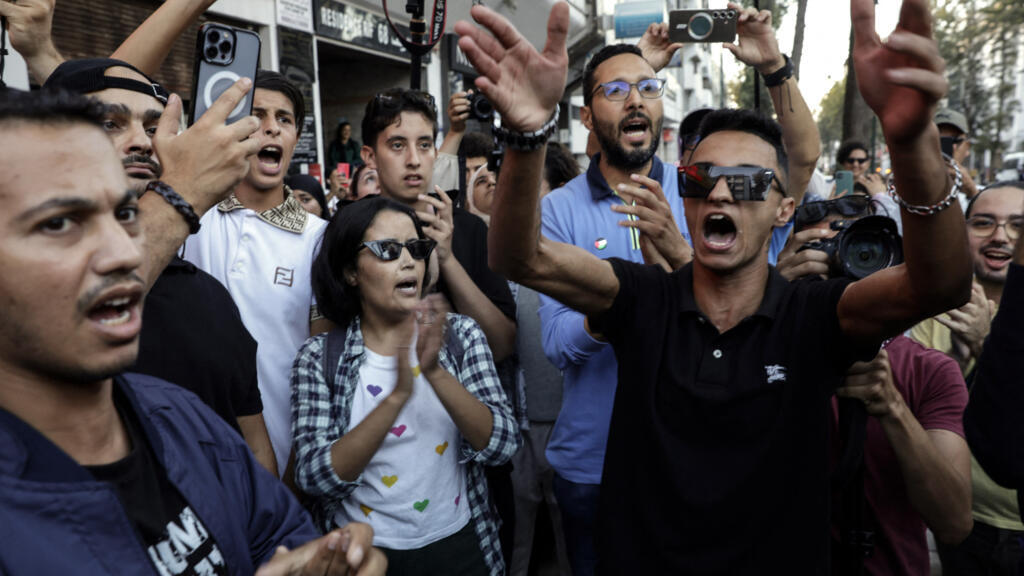Morocco is preparing to co-host the 2030 FIFA World Cup, with plans to build the world’s largest football stadium at a cost of nearly $5 billion. But for thousands of young Moroccans, this massive investment highlights misplaced priorities. Across the country, members of a movement calling itself Gen Z 212 have taken to the streets demanding healthcare, education, and social welfare instead of football mega-projects.
The protests, coordinated via Discord, TikTok, and Instagram, began on September 27 in 10 cities and have since spread nationwide. Demonstrators chant slogans such as “No World Cup, health comes first” and “We want hospitals, not stadiums.”
The spark came after the death of eight women in a maternity ward in Agadir, reportedly due to poor care and lack of equipment. Morocco has just 7.8 doctors per 10,000 citizens—far below the World Health Organization’s recommendation of 23.
Among the demands shared online are free quality education, accessible healthcare, affordable housing, better public transport, lower food prices, job creation, and even adopting English over French as Morocco’s second official language.
Authorities have responded with mass arrests. By early October, more than 400 protesters had been detained, with clashes leading to three deaths in Lqliaa. Human rights groups have condemned the police crackdown, while protesters insist their movement is peaceful and leaderless.
One protester, 25-year-old communications manager Hajar Belhassan, told the BBC: “We love football, but we are missing the foundations. Sure, let’s build stadiums, but let’s also build our education and health systems.”
As Morocco looks forward to the global spotlight of the 2030 World Cup, the Gen Z 212 movement is making clear that stadiums alone will not bring dignity to its citizens. Their message is simple: before celebrating football, the government must first invest in the well-being of its people.

